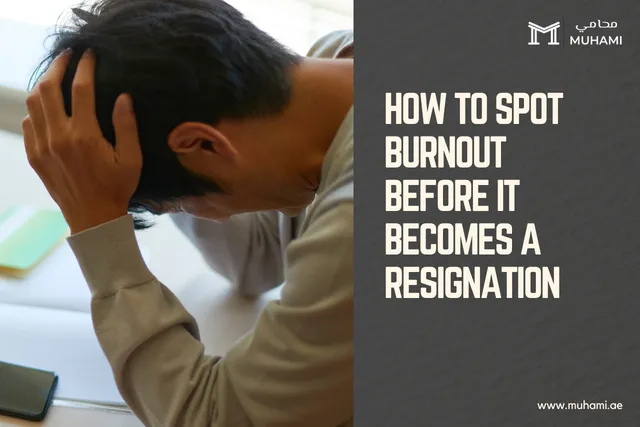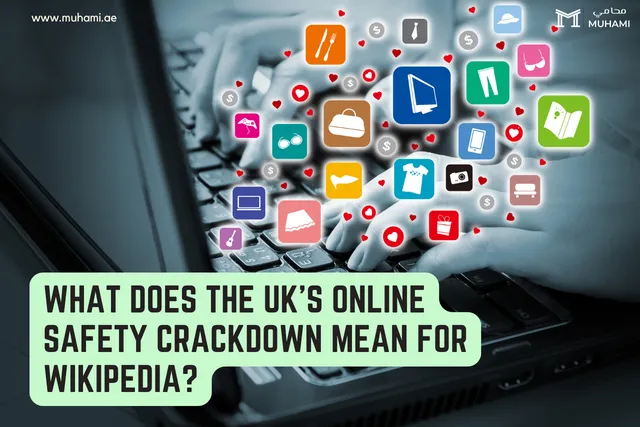How to Spot Burnout Before It Becomes a Resignation

Burnout rarely happens overnight. It builds slowly, often silently, which makes it easy to miss. The enthusiastic team member who starts missing deadlines, the dependable colleague who withdraws, or the top performer putting in long hours but no longer delivering as before; these are all early signals.
It’s tempting to dismiss this as “just stress” or a busy season. But without proper check-ins, short-term stress can escalate into full-blown burnout. By the time a resignation lands on your desk, it’s often too late to turn things around.
What is burnout?
Burnout is more than tiredness after a tough week. It’s a state of chronic emotional, mental, and physical exhaustion that develops over time.
In the UAE, the risks are amplified. Professionals often juggle long hours, multiple time zones, and life far from family. Add to this the relentless pace, high expectations, the stigma around discussing mental health, long commutes and the heat; and the pressure to be “always on” becomes immense.
Spotting the warning signs
Waiting for a resignation letter means you’ve already missed the chance to help. Spotting burnout is not just HR’s role; it requires a workplace culture where everyone pays attention and checks in. Key signs include:
· Drop in energy and engagement Formerly proactive employees become passive, distracted or reluctant to take on extra responsibility.
· Recurring physical complaints Headaches, fatigue, sleep issues or an increase in sick days may be stress-related, not just health-related.
· Emotional detachment or mood shifts Irritability, frustration or emotional numbness in someone usually calm is a strong red flag.
· Frequent absences or lateness A reliable employee who suddenly starts arriving late, logging off early or calling in sick may be struggling beneath the surface.
· Long hours with declining output In places like Dubai, staying late can be mistaken for dedication. But if long hours don’t translate into results, burnout; not inefficiency may be to blame.
Over time, burnout doesn’t just erode performance; it undermines morale, trust, and retention. High-performing cultures are built on healthy boundaries and support, not exhaustion.
What employers in the UAE can do
Unfortunately, burnout doesn’t announce itself. Most employees won’t openly admit they’re struggling; not out of unwillingness, but because of stigma and pressure, especially when visa status is tied to employment. That makes early detection and empathy essential. Leaders and HR teams can:
· Check in properly, not just about tasks Make space for real conversations. A genuine “How are you doing?” goes further than another status update. You don’t need to be a therapist; you just need to lead with empathy.
· Respect time zones and boundaries Calls at 8am and again at 9pm add up quickly. Be intentional about scheduling and make it acceptable to disconnect.
· Normalise wellbeing resources Employee Assistance Programmes, wellness budgets or mental health apps only work if people know about and feel safe using them. Share openly and encourage access.
· Recognise effort, not just results Small acknowledgements “Thanks for handling that client” build loyalty and resilience.
· Rethink exit interviews These often surface burnout triggers like poor leadership, unmanageable workloads or high-stress environments. But why wait until someone leaves? Proactively gather feedback earlier.
Intervene before It's too late
When a resignation arrives, the window to intervene is nearly closed. But managers can shift the conversation by asking:
· “What feels unsustainable right now?”
· “Where do you need more support?”
· “If you could change one part of your workload, what would it be?”
· “What can I or the team do to help?”
These questions don’t just uncover issues; they create space for honest dialogue and problem-solving before burnout drives turnover.
How employees can help themselves
· Take a Break, even briefly. A walk, a quiet lunch or a weekend without checking emails can work wonders. Your brain needs rest to problem-solve and focus effectively.
· Set Boundaries. Start small. Define your "non-negotiables" for the day maybe it’s finishing work on time, protecting your lunch break or limiting after-hours communication and be consistent with it.
· Delegate, you don’t have to do it all. Talk to your manager about redistributing tasks or shifting deadlines. When you share the load, you give others space to step up and show your manager where resources could be lacking.
· Make time for the things that bring you energy whether it’s a hobby, a workout or coffee with a work friend during the day. Moments of joy in the workday is a buffer
· Be transparent early on. If you're starting to feel overwhelmed, tell your manager before it becomes a crisis. Try: “I’ve noticed my energy’s dipping and I’m struggling to keep up. Can we talk about my workload and balancing things?”
· Ask for prioritisation. Not everything can be urgent. When you’re facing too much at once, ask: “Which of these should I focus on first?” This gives your manager the chance to help you refocus but also manages expectations on all sides.
· Come with a solution. If you know what you need, a day to catch up, fewer meetings that week, time to complete a training just say it. Managers are more likely to say yes when you propose a solution.
Final thought
Burnout doesn’t suddenly appear; it builds up through missed breaks, ignored stress, and unspoken frustrations. The UAE’s workplace culture is demanding, but slowing down may be the smartest way to sustain performance.
One honest conversation, one small change, or one empathetic leader can make the difference between an employee burning out and an employee staying engaged.
Struggling with resignations or signs of employee burnout? At Elevate HR, we partner with organisations across the UAE to build people-first, compliant workplaces that prioritise wellbeing and long-term retention. If you’re noticing increased turnover or low morale, we’d be glad to support you.
Any Questions?
Connect with lawyers and seek expert legal advice
Share
Find by Article Category
Browse articles by categories
Featured Partnership
Elevate HR and Search
HR Advisory | Search | Coaching
Related Articles

What Does the UK’s Online Safety Crackd…
The U.K.'s Online Safety Act (OSA) has faced significant criticism for its …

What Does the UK’s Online Safety Crackdown Mean f…
The U.K.'s Online Safety Act (OSA) has faced …

Can AI Meeting Tools Record Without Con…
Smart devices, such as voice assistants, fitness trackers and AI-powered meetin…

Can AI Meeting Tools Record Without Consent?
Smart devices, such as voice assistants, fitness …

How the UAE Ensures Your Biometric Data…
The UAE's regulatory framework for biometric data protection addresses the …

How the UAE Ensures Your Biometric Data is Protec…
The UAE's regulatory framework for biometric …
